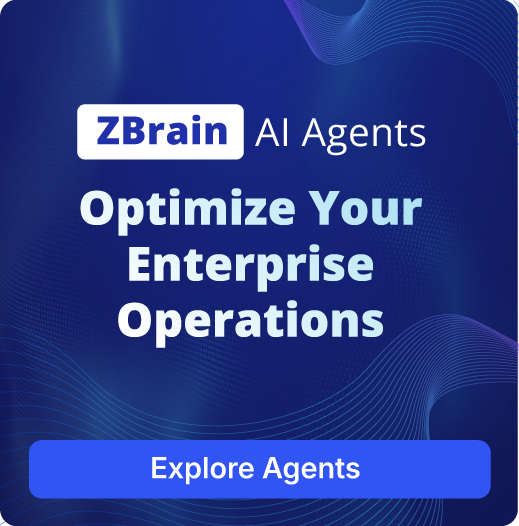Core Capabilities of ZBrain AI XPLR™
ZBrain AI XPLR™ supports the full AI opportunity lifecycle, enabling enterprises to consistently capture, evaluate, and translate ideas into implementation-ready solution designs that deliver measurable business value at scale.

AI Opportunity Discovery Aligned to Enterprise Processes
Enterprise Technology Landscape Intelligence
AI Solution Architecture and Design
Implementation-ready AI Solution Design
AI Solution Evaluation and Prioritization
End-to-End AI Lifecycle Visibility and Governance
Core Modules of ZBrain AI XPLR™
ZBrain AI XPLR™ comprises an integrated set of modules designed to manage the full AI opportunity lifecycle. Each module plays a distinct role, from structured idea intake and evaluation to detailed solution design and portfolio governance. Together, they enable organizations to consistently identify, assess, design, and manage AI initiatives at scale.
Process XPLR™
Ideation XPLR™
Data XPLR™
Solution XPLR™
Portfolio XPLR™
The Difference That Drives Results

How ZBrain AI XPLR™ Transforms Your Business Functions
Finance and Accounting
Human Resources
Customer Service
Sales and Marketing
Global Business Services (GBS)
Supply Chain and Operations
Strategic Sourcing and Procurement
Information Technology (IT)
Why ZBrain AI XPLR™
Faster Time to Value
Lower Implementation Risk
Greater Confidence in ROI
Sustained Competitive Advantage


